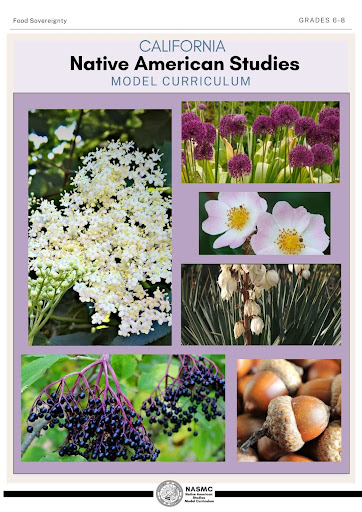Overview
Free Resources!
Introduction to Food Sovereignty

Author:
Grade(s): 9th-12th Grades
Suggested Amount of Time: 60 minutes
Curriculum Themes
- Cultural Strengths
- Relationship to Place
Learning Goals
Content Objective: Students will define food sovereignty and identify key challenges Native communities face regarding food access and cultural preservation.
Process Objective: Students will analyze a text about food sovereignty and create a Venn diagram comparing traditional and modern food systems.
Outcome Objective: Students will write a reflection explaining the importance of food sovereignty for health and cultural preservation.
Students will define food sovereignty and identify its key principles.
Students will analyze the challenges Native communities face regarding food sovereignty.
Students will compare precolonial and modern food systems in California Native communities.
Students will reflect on the importance of food sovereignty in promoting health and cultural preservation.
Lesson Overview
This lesson introduces students to the concept of food sovereignty and its importance to California Native communities. Students will explore how historical events disrupted traditional foodways and analyze the challenges Native communities face in regaining control over their food systems. Through reading, discussion, and a Venn diagram activity, students will develop an understanding of the cultural and ecological significance of food sovereignty and reflect on its role in improving health and preserving traditions. Students will understand the concept of food sovereignty and its importance to California Indian communities.
Teacher Background
Watch this video from the California Indian Culture and Sovereignty Center. Nicole Lim is discussing an overview of teaching Food Sovereignty. https://www.youtube.com/watch?v=9Iqw_CTPGQk
https://www.youtube.com/watch?v=9Iqw_CTPGQk
Teaching food sovereignty in the context of Native American history requires a nuanced understanding of the cultural, historical, and environmental factors that have shaped Indigenous relationships with food systems. Teachers will utilize the California Indian Culture and Sovereignty Center’s Food Sovereignty Toolkit to support instruction. Read through this toolkit to prepare for this unit. The resource provides background to support teachers in delivering these lessons effectively and respectfully. Access the California Indian Culture and Sovereignty Center’s Food Sovereignty Toolkit:
https://www.csusm.edu/cicsc/projects/projects_docs_images/foodsovereigntytoolkit.pdf